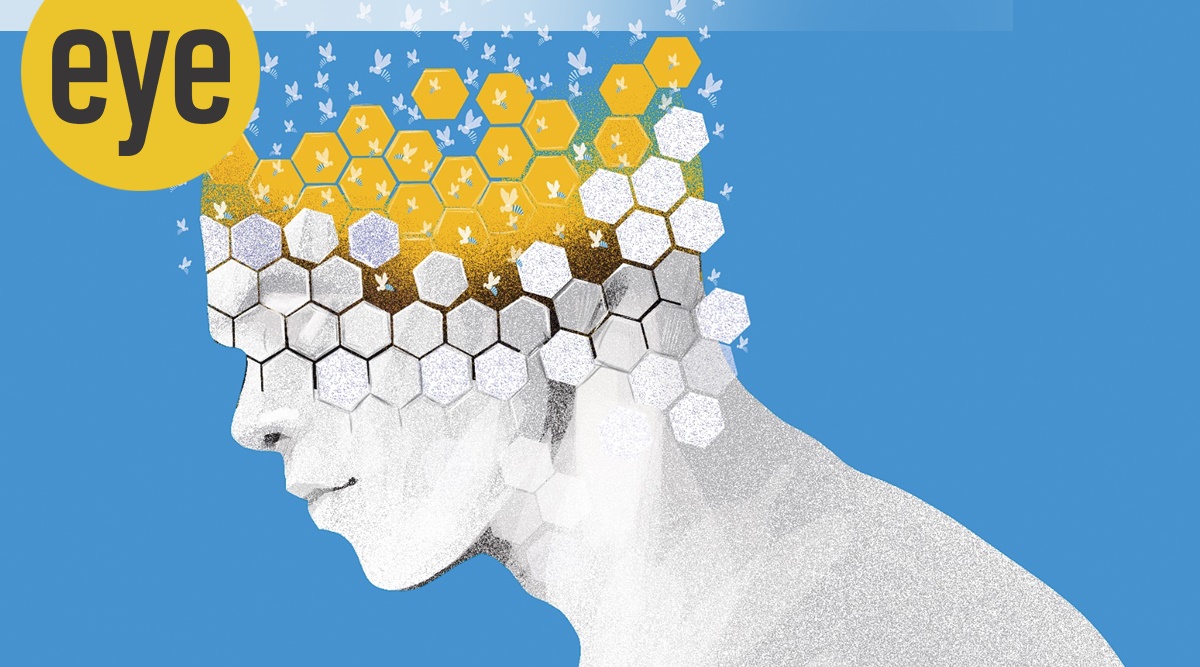How mindfulness can help us address our feelings of exhaustion and burnout
We are walking around with our minds “leaking” and wondering why we are more depleted than ever
 Is burnout real? (Credit: Suvajit Dey)
Is burnout real? (Credit: Suvajit Dey)“I am so burnt out!” This is a sentiment echoed in so many conversations across various urban spaces, be it high school and college students, young workers, teachers, people in the corporate as well as the NGO sector and even the custodians of our mental health – therapists, counsellors and psychiatrists. People are talking about being “exhausted,” “overwhelmed,” and, as one person put it, “every day is like a Sisyphean task to endure and start again.”
As there is such an inevitable connection between burnout and mental health, I have always been intrigued by the way it has shown up over the last three decades in my journey as a therapist. There were three ingredients that seemed to be closely tied to the churn of it – the productivity trap of excessive work, work not being aligned with what we value and hardships in our personal lives that eroded our energy to work. However, in the past seven years, that peaked during the pandemic, I started noticing a big shift. I started hearing people feeling depleted despite loving the work they were doing.
This experience has been described by people in so many fascinating images – “squirrel brain”, “walking around with a dripping tank mind” and the “beehive brain”. They really encapsulate the churn that our minds experience on a day-to-day basis. Now, what is happening to our brains that is inviting such a stirring?
Digital lure: Imagine if a child was trying to read inside the world’s biggest free candy store. Chances are high that the lure of the candy would outweigh any interest in reading. Especially if the candy was free and multiple billion dollars were going into making it so deliciously attractive. I am taking a child’s example here but an adult brain is not in any way different in resisting this enticement because that is what the internet candy store is doing to us, isn’t it? With all the dings of pleasure through endless scrolling of Instagram reels, YouTube videos, Netflix shows – the candies are laid out to us and who among us can resist the endless delights they promise?
Attention theft: “But it is surely harmless”, you might say, “what is wrong with some fun?” I am no Luddite and I enjoy my time at this candy store and end up overstaying and enjoying its guilty pleasures more than I would like to admit. But I am very much aware of the insidious way it is stealing my precious time. Time I could have done things that I really cherish – spending time with my family, reading, writing, thinking, ideating, being in nature and so much more. But no, I spent that time checking emails I wish I did not get, meaningless WhatsApp messages or just doing random internet searches under the pretext of research. Commenting on the snares of multitasking, a young person shared, “At the end of the rabbit hole is just shame of not having done anything I set out to do. It is a Kafkaesque nightmare!”
Cost of cognitive shifts: Another question you might ask is, “We get how it robs us of our time, focus and attention but how is this related to burnout?” Well, if in a day I am spending hours checking emails and WhatsApp messages, where does it leave time for me to do what really matters to me? Not only that, every time I am moving from my writing to opening my inbox or dipping into Google, there is a cognitive cost to it. Let me explain with an example: suppose you are working on a whiteboard, putting your wonderful ideas down with clarity and the lure of the internet candy got you to take a quick peek at your Instagram page. Let’s slow the process down and see what happens.
Your brain is on focus mode – thinking, reflecting, buzzing with ideas. As soon as you peek into Instagram, you lose your train of thought and you see a disturbing post on some latest news of violence. You might close the Instagram instantly but the brain has already been highjacked and carries the residue of the disturbing picture. You turn to the whiteboard but it does not make sense any more. It is as if somebody has erased most of your ideas away and you have to start all over again. Now, what if it happened throughout the day as your quick peeks into the candy jars left you more and more fatigued? Very much like walking through the day with what my friend called the “dripping tank mind”. We are walking around with our minds leaking and wondering why we are more depleted than ever.
Recently, I tried a little experiment and also started checking with many people I met on what they were doing to resist the ‘dripping tank”:
Digital breaks: So my little experiment — recently when I was on a family holiday, I went off gadgets for a week – no WhatsApp, emails, internet – nothing. After the initial twitchiness ( imagine resisting whipping out your phone every time you see something spectacular), it left me feeling refreshed and liberated. I did all things that I held precious — read a pile of books, wrote, reflected, went for long walks, had meaningful conversations and let myself experience “being” without the pressure of living in a hyper alert state. A lot of people have shared with me how they take digital breaks during weekends, after work or only have access to their gadgets at slotted times as a way to stop their tank leaking.
Intentional use: What gives you a sense of joy, brings value to your life and makes you more creative? If there is an app that helps you do that, then choose it intentionally. I know of artists, designers and photographers who earn their living by showcasing their work on Instagram. But they do it very intentionally – they delete it after posting and then reinstall next time they have to use it. They are using social media rather than letting it use them.
Ethical digital culture: We cannot expect Google, Facebook etc to start becoming concerned about the impact of the digital overload on us and taking active steps to stay accountable. The profits are too huge and their power is immense. But maybe we could take small micro-steps in our lives to bring about a change. Imagine if schools and colleges started a curriculum demystifying the operations of power — who is benefitting, the impact on our lives and having conversations on the intentional and ethical use of gadgets, thereby inviting a higher sense of agency and making space for informed decisions. Imagine if workspaces transformed the reactive “beehive” culture and did not equate the buzz of relentless emails, slack channels and messages as metrics of efficiency or productivity. Life is the sum total of what we pay attention to. Imagine being able to step out of this techno-sucking spiral and stepping into a life where we can engage more joyfully, live more meaningfully and work more deeply.
Shelja Sen is a narrative and family therapist, writer, co-founder of Children First. In this column she curates the know-how of the children and youth she has the honour of working with. Email her at shelja.sen@childrenfirstindia.com
- 01
- 02
- 03
- 04
- 05






























